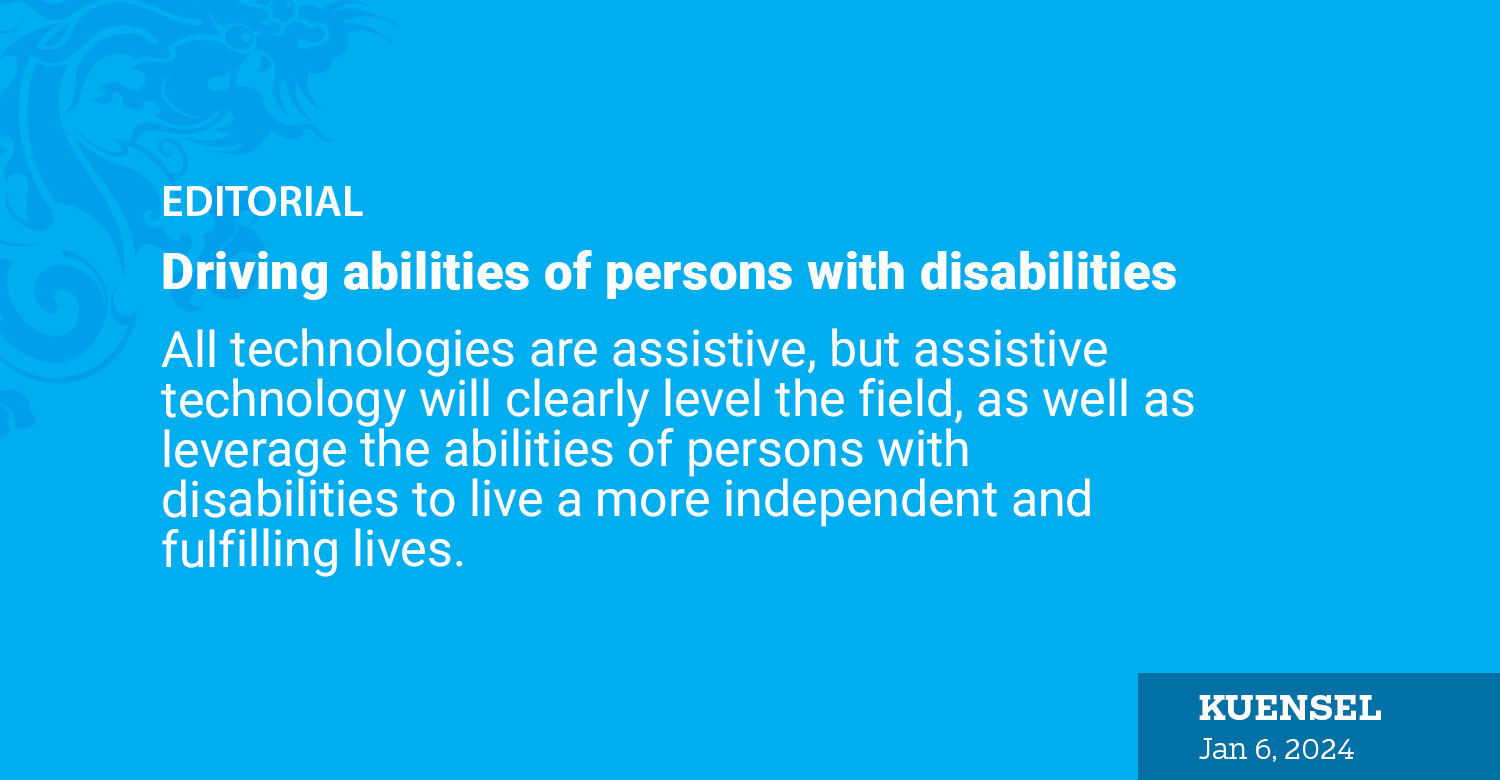All technologies are assistive, but assistive technology will clearly level the field, as well as leverage the abilities of persons with disabilities to live a more independent and fulfilling lives.
Integrating assistive technology and innovation have transformed lives of persons with disabilities, discover abilities and enhance their functional capabilities elsewhere.
From advanced cutting-edge science and technology such as sensor-responsive communications to basic and relatively low-tech devices to allow holding a cup or a pen – technology is expected to advance mainstreaming and inclusion of persons with disabilities.
In Bhutan as well, efforts are underway to enhance the use of assistive technology for children and persons with disabilities. In this regard, Bhutan Foundation has financially supported Phensem Parents Support Group (PSG), a CSO of Parents of Children with Disabilities, to provide access to need-appropriate customized assistive technology and innovation for person with disability in Bhutan. An agreement to this effect was signed early this week.
Whereas the current use of technology had bordered around overcoming physical barriers such as the use of wheelchair, the future technology indicates the use of innovations and devices developed locally and using local available materials, for children and persons across the varying spectrum of disabilities in the country.
The parents of children with disabilities are excited on the prospects of leveraging assistive technology for daily living, recreation, and education.
The anticipation is also that assistive technology will enhance access to inclusive education and learning for children with disabilities – not just in Bhutan but world over. However, those at the centre of transforming education – the global multi-stakeholder partnership, Global Partnership for Education, and UNESCO – are also calling on policy support, and social behavioral change as drivers of inclusion.
As a pedagogical concept that children of all abilities must learn, quality Inclusive education has been promised as SDG4 to be achieved by 2030. However, a review of the progress confirms the goal will not be achieved as promised as majority of the children with disabilities, in our country as well as abroad, were absent from schools.
And even when children with disabilities went to school, they were excluded from learning because the curriculum was not adapted to their needs, or the teachers were not equipped to support their learning. In that, inclusive learning was not meant segregating them in special school and separate classrooms, as practiced today.
It is encouraging that an adapted curriculum for children with disabilities is already in place in Bhutan. And with an enhanced use of assistive technology, disability may no longer be a disqualification to partake for our children and persons with disabilities.


